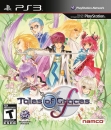curl-6 said:
WolfpackN64 said:
curl-6 said:
They desperately need to cut the cord with PowerPC and not let ageing architecture hold them back next gen. |
Last PowerISA version was released in 2014. PowerPC is anything but ageing.
|
Gaming has moved on to x86. That is what is standard now. Sticking with PPC already caused Wii U to have an underpowered CPU, it will do the same to their next system if they retain it.
|
PPC is not the reason Espresso is underpowered. Espresso is still a relative to Gecko from the Gamecube (albeit with higher clockspeed and 3 cores).
In the server business in the meantime, POWER8 chips stomp all over the Xeons (but obiously, you can't use a server chip in a console). And with the succes of ARM on Android, the myriad of games on MIPS on PS2 and the numerous games on Power ISA (Xbox 360, PS3, Gamecube, Wii) and the ease of compiling code or even using universal binary, the porting argument is really just misused. Some companies don't want to take the risk of porting and selling their games on the Wii U, but if they want to, it's not that hard.
And moved on to, you do know x86 is older than PowerPC, right?
























































